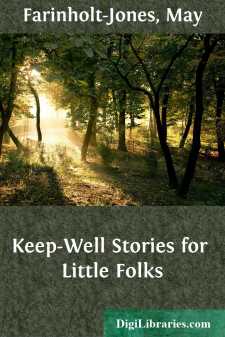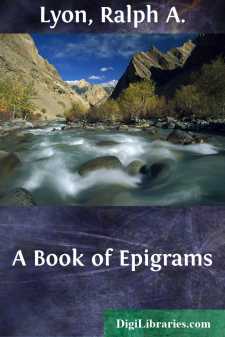Categories
- Antiques & Collectibles 13
- Architecture 36
- Art 48
- Bibles 22
- Biography & Autobiography 813
- Body, Mind & Spirit 142
- Business & Economics 28
- Children's Books 17
- Children's Fiction 14
- Computers 4
- Cooking 94
- Crafts & Hobbies 4
- Drama 346
- Education 46
- Family & Relationships 57
- Fiction 11829
- Games 19
- Gardening 17
- Health & Fitness 34
- History 1377
- House & Home 1
- Humor 147
- Juvenile Fiction 1873
- Juvenile Nonfiction 202
- Language Arts & Disciplines 88
- Law 16
- Literary Collections 686
- Literary Criticism 179
- Mathematics 13
- Medical 41
- Music 40
- Nature 179
- Non-Classifiable 1768
- Performing Arts 7
- Periodicals 1453
- Philosophy 64
- Photography 2
- Poetry 896
- Political Science 203
- Psychology 42
- Reference 154
- Religion 513
- Science 126
- Self-Help 84
- Social Science 81
- Sports & Recreation 34
- Study Aids 3
- Technology & Engineering 59
- Transportation 23
- Travel 463
- True Crime 29
Sort by:
The year 1888, that of the Silver Wedding of the Prince and Princess of Wales, is also the 25th anniversary of the year when the Prince first began to appear in public life. It is, therefore, a fit time to present some record of events in which His Royal Highness has taken part, and of services rendered by him to the nation, during the past quarter of a century. The best and the least formal way of...
more...
by:
Anonymous
HOSPITALITY OF THE ARAB. In 1804, Osman Bardissy was the most influential of the Mameluke Beys, and virtually governed Egypt. Mehemet Ali, then rising into power, succeeded in embroiling this powerful old chief with Elfy Bey, another of the Mamelukes. The latter escaped to England, where he was favourably received, and promised assistance by our government against Osman, who was in the French...
more...
by:
Laura Lee Hope
CHAPTER I THE GREAT MARINE FILM "Well, at last a breathing period, Ruth. Oh, I am surely tired!" and the girl threw herself on the couch, without stopping to remove her light jacket and hat. Her head sank wearily on a cushion. "Oh, Alice! Be careful! Look out!" exclaimed the other occupant of the pleasant little room, a room made habitable by the articles of tasteful adornment in it,...
more...
A WONDERFUL ENGINE We all have seen a steam engine, have we not? There are engines that pull trains on the railroad, and there are engines that make factories, gins, and saw-mills work. Then there are engines that run great ships on the water. How many know what must be done to one of these engines before it can do all this work? "It must have coal, or wood, or gasoline put into it." That is...
more...
by:
Unknown
In the year 1768 a German peddler, named George Gist, left the settlement of Ebenezer, on the lower Savannah, and entered the Cherokee Nation by the northern mountains of Georgia. He had two pack-horses laden with the petty merchandise known to the Indian trade. At that time Captain Stewart was the British Superintendent of the Indians in that region. Besides his other duties, he claimed the right to...
more...
by:
Ralph A. Lyon
EPIGRAMS POETRY She comes like the hushed beauty of the night, But sees too deep for laughter; Her touch is a vibration and a light From worlds before and after. [Charles E. Markham Poetry? Can I define it, you inquire? Yes; by your pleasure, Poetry is Thought, in princeliest attire, Treading a measure. [Duffield Osborne[2]THE YEAR’S MINSTRELSY Spring, the low prelude of a lordlier song; Summer, a...
more...
THE AMERICAN TYPE OFISTHMIAN CANAL It was on June 14, 1906, when the Canal subject was up for final consideration, that Mr. Dryden addressed the Senate. The official records show that "S. 6191, to provide for the construction of a sea-level canal connecting the waters of the Atlantic and Pacific oceans, and the method of construction," was before Congress, and it was in opposition to this...
more...
CHAPTER I Bath House, the most ambitious structure ever erected in the West Indies, and perhaps the most beautiful hotel the world has ever seen, was the popular winter refuge of English people of fashion in the earlier half of the nineteenth century. This immense irregular pile of masonry stood on a terraced eminence rising from the flat border of Nevis, a volcano whose fires had migrated to less...
more...
CHAPTER I. The last wisp of hay was in the Eddy mows. "Come on!" shouted Jot."Here she goes—hip, hip, hoo-ray!" "Hoor-a-ay!" echoed Kent. But of course Old Tilly took it calmly. He planted his brown hands pocket-deep and his bare, brown legs wide apart, and surveyed the splendid, bursting mows with honest pride. "Yes, sir, that's the finest lot o' hay in Hexham...
more...
Book 64 3 John 001:001 The Elder to his dear friend Gaius. Truly I love you. 001:002 My dear friend, I pray that you may in all respects prosper and enjoy good health, just as your soul already prospers. 001:003 For it is an intense joy to me when brethren come and bear witness to your fidelity to the truth—that you live in obedience to the truth. 001:004 I have no greater joy than to hear that my...
more...











